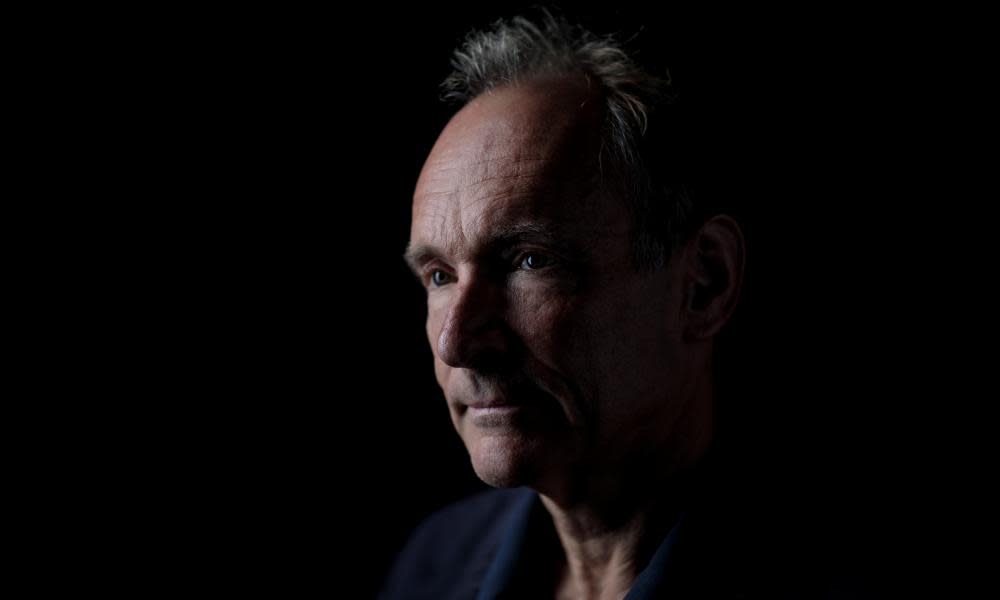Australia's proposed media code could break the world wide web, says the man who invented it

The inventor of the world wide web says proposed Australian media laws requiring tech giants Google and Facebook to pay for displaying news content risks setting a precedent that “could make the web unworkable around the world”.
Tim Berners-Lee, who invented the world wide web in 1989, said the draft legislation “risks breaching a fundamental principle of the web by requiring payment for linking between certain content online”.
In a submission to an Australian Senate inquiry on the News Media and Digital Platforms Mandatory Bargaining Code bill, Berners-Lee said the ability of web users to link to other sites was “fundamental to the web”.
Requiring digital platforms to pay to host that link, a world-first provision of the proposed Australian laws, would “block an important aspect of the value of web content”, the computer scientist said.
Berners-Lee argued the proposal “would undermine the fundamental principle of the ability to link freely on the web and is inconsistent with how the web has been able to operate over the past three decades”.
Related: US attacks Australia's 'extraordinary' plan to make Google and Facebook pay for news
“If this precedent were followed elsewhere it could make the web unworkable around the world,” he said. “I therefore respectfully urge the committee to remove this mechanism from the code.”
The legislation was tabled in parliament in December after the federal government abandoned plans for a voluntary code of conduct which was being developed by the Australian Competition and Consumer Commission and instead requested the watchdog develop a mandatory code.
Lobbying for the proposed laws was spearheaded by News Corp Australia but it has the broad support of the Australian media industry including Guardian Australia.
The legislation is drafted to target Google and Facebook in the first instance, which between them net more than 80% of the online advertising spend in Australia. Both companies have made submissions to the inquiry which is due to start public hearings on Friday.
Facebook argued that tech companies should be granted a six month grace period to strike commercial deals with major Australian news publishers outside of the regulatory framework, which includes an arbitration process the tech giants say works to “inherently disadvantage” digital media platforms.
The social media behemoth also argued that instead of having to strike a commercial deal with all Australian publishers – including local and regional news providers – support for smaller players should be delivered “via a competitive pool or grant round, rather than a legislative requirement to enter into negotiations with every publisher, with potentially uncapped and unknown exposure for Facebook”.
The company had previously threatened to block its Australian users from sharing local news if the proposed mandatory code becomes law.
In its submission to the Senate committee, Facebook said the proposed regulatory regime was “complex, unpredictable and unworkable for our business.”
It repeated a suggestion made by the US government that the proposed laws could run contrary to the Australia-US free trade agreement and obliquely warned the legislation could advantage Chinese social media platforms.
“The decision to limit the legislation to two US companies is also discriminatory and will inevitably give an unfair advantage to Facebook’s competitors in the technology sector, including rivals from countries that propagate different and undesirable visions for the internet,” it said.
Facebook said it was willing to pay Australian publishers for news content “so long as it is subject to genuine commercial consideration” but said the mechanism in the legislation was “not connected to commercial reality” and had already discouraged it from investing in Australia. Facebook was intending to launch Facebook News in Australia late last year but instead launched it in the UK.
Related: Facebook to pay UK media millions to license news stories
Google said the proposed code “remains unworkable”, saying that forcing Google to pay for links and snippets that appear in Google Search “would break the way search engines and the internet work for everyone”.
It said results in its search engine should be exempt from the code. Google said it would work out commercial agreements with publishers to appear in its Google News Showcase service – which it was already doing.
It also said the arbitration provisions were skewed toward media companies and should be replaced by a standard commercial arbitration mechanism.
Twitter, which would not be subject to the code, said the proposed regulatory regime lacked transparency and risked entrenching “dominant players at the expense of smaller digital platforms” if news outlets choose to funnel all their content through platforms that paid them for content.

 Yahoo Movies
Yahoo Movies 
